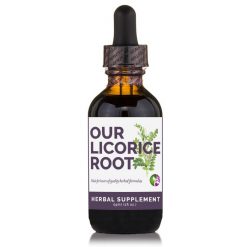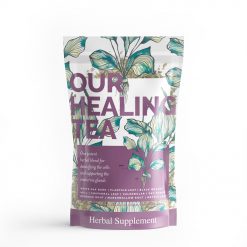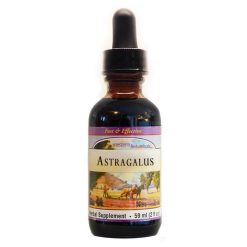No products in the cart.
Our Wild Ocean Kelp Capsules
$26.95
Herbal Tincture Extracted from: Dried seaweed
Also known as: Ascophyllum nodosum
Prominent among the minerals are iodine, salt, iron, potassium, phosphorus and calcium. The lead vitamins in kelp are vitamin A and niacin. Helps in Thyroid Gland Regulation: Due to Kelps high levels of natural iodine, it is essential in regulating our thyroid hormones and therefore our metabolism and energy levels.
CONTAINS 100 VEGE CAPSULES
Sorry, This formula is out of stock just now :(
SKU: URWL01 Categories: Our Botanicals Products, Our Favourite Formulas, Single Herb Extracts & Capsules
The Largest Source of Iodine
Many foods contain iodine, but nowhere near the tremendous amount in kelp. A single tablespoon provides a whopping 500 percent of the DRV. Nothing else comes close — not scallops, with 90 percent of the DRV, or cod, with 88 percent in servings of 4 ounces each, or a cup of yogurt, which nets 47 percent of the DRV.
According to the George Mateljan Foundation, a non-profit foundation that shares scientifically proven information about the benefits of healthy eating:
“Iodine is a key component of the hormones made in the thyroid gland. These hormones are absolutely critical to human health, helping to control energy production and utilization in nearly every cell of the body.”
Iodine also helps regulate your thyroid gland to produce strong, healthy hair, skin and nails, as well as to form thyroid hormones, thyroxine and triiodothyronine. It’s also essential for proper formation of your skeletal framework and regulating your body’s energy and brain metabolism in a process regulated by your pituitary gland.
The myelination process in the central nervous systems of newborns is another key function of the thyroid hormone. Balanced iodine in the mother’s body is imperative in pregnancy and breastfeeding for optimal development of the baby’s brain cells.
Naturally High In Minerals
Kelp is an excellent source of magnesium, potassium, calcium, boron, soluble fiber and iron, as well as vitamins A, B12, C and E.
The iron in kelp helps form healthy blood and prevent anemia and the antioxidants fight free radicals, altogether ensuring the growth of strong bones and optimal muscle function. According to the George Mateljan Foundation:
“One tablespoon of dried sea vegetable will contain between one-half milligram (mg) and 35 mg of iron, and this iron is also accompanied by a measurable amount vitamin C. Since vitamin C acts to increase the bioavailability of plant iron, this combination in sea vegetables may offer a special benefit.
Overview of Kelp Benefits:
- Excellent source of vitamins and minerals: Kelp has been shown to contain 46 minerals, 16 amino acids (the building blocks of protein) and 11 different vitamins. Prominent among the minerals are iodine, salt, iron, potassium, phosphorus and calcium. The lead vitamins in kelp are vitamin A and niacin.
- Helps in Thyroid Gland Regulation: Due to Kelps high levels of natural iodine, it is essential in regulating our thyroid hormones and therefore our metabolism and energy levels.
- Kelp helps in hydration. This may be particularly important to note when you have been ill or exposed to too much heat and sun. Make a soup or broth with kelp and rehydrate quickly.
- Assists in Weight Management and Weight Loss: Due to kelp’s iodine content and its role in thyroid function, one of kelps benefits is improving metabolism and energy. An iodine deficiency can slow your metabolic function by as much at 50 percent, so including kelp can naturally and significantly improve weight loss and other associated health problems.
- Improves body pH: Kelp is an alkaline food and therefore an essential part of maintaining acid base balance in the body and an effective component in a healthy acid-alkaline diet.
- Protects against Radiation Poisoning: Once again, due to kelp’s high natural iodine levels, it prevents the thyroid from up-taking harmful levels of radioactive iodine present after a nuclear disaster. This has been particularly important since the recent nuclear fallout in Japan in 2011.
- Cancer prevention: particularly in estrogen sensitive cancers such as breast, endometrial and ovarian cancers.
1 review for Our Wild Ocean Kelp Capsules
Add a review Cancel reply
You must be logged in to post a review.
Herbal Tinctures Dosage Directions:
Tinctures are usually taken 1 dropperFULL 2-3 times per day. You can mix the dropper in water or juice if you find the taste is too strong for you, although I prefer to take mine 'straight'. If you are using multiple tinctures together in your protocol then you can mix the dosages into a 'shot-glass' to take if you wish.
Herbal Capsules Dosage Directions:
Capsules are usually taken 2 capsules 2-3 times per day, usually chased with water or juice to help them go down smoothly.
Herbal Teas Dosage Directions:
it is a perfect way to bring the healing power of herbs into your body throughout the day. Plus, making and drinking tea is always a beautiful way to have a special ceremonial time just for you and your wellness. The Heal All Tea is also often used very effectively as a mouth wash and also for douches and enemas.
- Internal: 1 to 3 cups, 2 to 4 times a day.
- Acute: 4 cups per day.
- Chronic: to 1 cup, 3 times a day.
- Douches: 1 cupful, 1 to 2 times a day.
- Enemas: 1 cupful, 1 to 2 times a day.
- Mouthwash: Hold and gargle, one cupful per day.
Caution during pregnancy, especially early pregnancy (first 5 months).
This tea is truly a Heal-All. Use as a douche, enema (colorectal issues), and as a mouthwash for mouth & throat cancers, abscesses, etc Internally a great daily detox tea. Much more powerful than Essiac Tea You may also use this tea as a poultice or fomentation.
GI Broom Dosage Directions:
Powder Form:
Mix 1 rounded teaspoon of The GI Broom in 8-12 oz. of fresh pressed (if possible) grape or apple juice, 1 time daily (either in the mid-morning or before bedtime). Follow immediately with 10-13 oz. of water. If you can't juice, 100% organic fruit juice (preferably in a glass container) is suitable.
Capsule Form:
Take 6 capsules with 10 oz of water once (acute) or twice (chronic) per day as directed by your healthcare practitioner. Be sure to stay hydrated with water or fruit juice. Constipation or dehydration is not wanted! Be sure to adjust bowel formulas so you are moving 3 times per day.
Note: Don't consume with supplements, foods or herbal formulas. Take at least two hours after meals and supplementation. For best results consume during periods of juice or fruit fasting.
Related products
New









Alexandra –
I just Love all of your products.